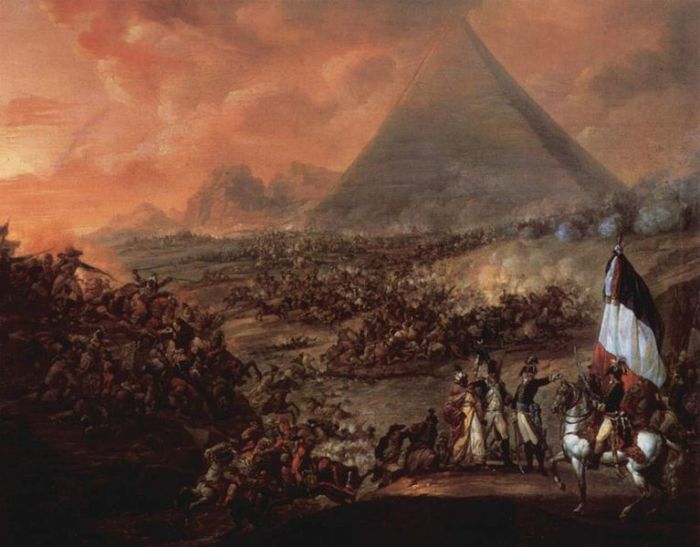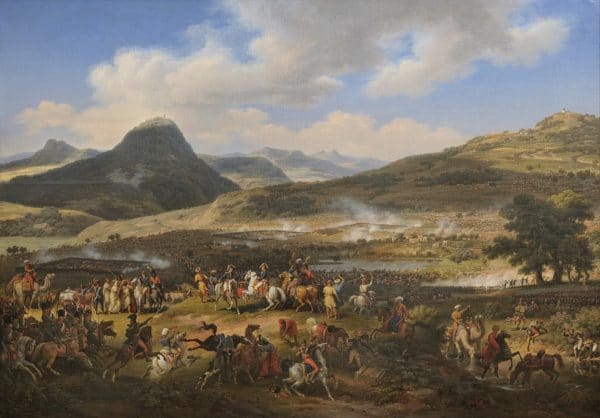Song of a Century- (Pt 3.Khitan Image-Heavy Megacampaign)
- Thread starter dragoon9105
- Start date
-
We have updated our Community Code of Conduct. Please read through the new rules for the forum that are an integral part of Paradox Interactive’s User Agreement.
You are using an out of date browser. It may not display this or other websites correctly.
You should upgrade or use an alternative browser.
You should upgrade or use an alternative browser.
Threadmarks
View all 37 threadmarks
Reader mode
Reader mode
Recent threadmarks
Chapter 25: The Infantryman and his rifle Chapter 26: Drowning in Mud Chapter 27: Breaking Point Chapter 28: A War to End All War Chapter 29: The Guns Fall Silent Chapter 30: The End of All Things Chapter 31: Myths and Reality Chapter 32: Tumbling DownYou could be right but it could be the fascist party having a thing for trying to restore Alexander the great's empire since the Macedonian symbol is a sun which is a star"The Night of Burning Stars" sounds very Khitan...
Last edited:
In that case, they'd use a more obviously Greek name.You could be right but it could be the fascist party having a thing for trying to restore Alexander the great's empire
It's probably a work in progress so the final tree will most likely be different once we get there with a focus tree that can help the Greeks with getting the old Macedonian territories backIn that case, they'd use a more obviously Greek name.
Prelude Part 1: Guns, Drums and Steel
Prelude Part 1: Guns, Drums and Steel

The Greek Revolution, An unprecedented affair has rocked the foundations of Europe to its core. The Greek Monarchy having survived the revolution has fled into exile in faraway Brazil, but in Europe there has been negotiations, Wars and unrest. The once Proud Empire of Scandinavia has fallen to Liberal Revolt, In Britain the Military has seized power, executing the Monarchy and declaring a Lord Protectorship over the Island, with Monarchists retreating to Wales to mount a final last stand.
In what was once Francia stands the Khitan Empire, Both strengthened and eroded by the passage of time and the dawning of new ages. Its own Revolution has recently been crushed, and now it finds itself aligned with the Central European Empires of Italy and Bohemia against a Revolution that looks to be surrounding the Monarchies of Europe on all sides. House Caetye, the descendents of the great conqueror Xiao resides on the Throne of all Three Empires, but a Storm is Coming.
In the East, mighty Persia ruled by radicalism has also taken with fever of revolution and the Greeks now have a potential ally that would give any force on earth Pause.


(Emperor Arthur of the Khitan Empire, 1821)
Despite his inexperience Arthur's first moves were both landmarks in Khitan history. The First was the abolition of Slavery throughout the Empire, effectively diffusing the threat of Slave revolts in the Khitan held parts of the caribbean. The Second was the construction of the Kiel Canal, which would enable naval access into the Baltic so long as the Principality of Holstein was defended.
With the dangerous years of his regency now past, Arthur has made moves to once again enter talks with the Bohemian and Italian Empires on an alliance to reclaim Britain for the Absolutist Cause, and Defang the Greek Revolution before it grows out of hand.

(Emperor Wenceslaus II of Bohemia 1818)
In Nearby Bohemia, Emperor Wenceslaus II, A distant Cousin and Kinsman of Arthur was the leader and organizer of the Absolutist Coalition against the Hellenic Republic. Known outside of Bohemia as Emperor Wilhelm of Bohemia, the Man was considered to be a capable military commander and had spent years on the field fighting the Greeks in the first continental war, finding only the Empire's lack of manpower and supplies to be his major obstacles on the field.
Since the first Defeat Bohemia under Willhelm has spent the last decade rebuilding and borrowing vast sums of Gold from the nearby neutral nation of Lithuania as well as the more friendly Khitan Empire to the West. In an effort to prevent revolutionary activity south of the Carpathians from breaking out, Nominal independence to the now Kingdom of Avaria was given in exchange for military and financial support. Now Bohemia stands prepared for a rematch with the Greek Republic, though none expect it to be easy, and all assets within the alliance will need to be up to par, including the Italians who have been a constant disappointment to the Empire.

(King Fernando II)
Revolutionary sentiment then spread to America, losing Italy her invaluable colonies of La Plata and Columbia, both of which were essential to the Italian colonial based economy. All the While her armies continued to underperform in Europe and her influence while strong continued to lag further and further behind that of her supposed equal, the Bohemian Empire.
Urbanized and Wealthy Italy by all intensive purposes remained a relevant strategic target for her enemies due to her potential to field vast amounts of well equipped troops and for every inch of Italian Soil taken in the past wars, there has been a heavy amount of Italian Blood spilled. King Fernando, the eldest and most established monarch in Europe cannot however claim a single victory to his name, and continued years of a failure to produce even an heir have begun to show cracks in what was once considered a firm Absolutist Cornerstone. The Next few years would see Italy return to Grace, or Fall to the Greeks just as the Ostrogoths did to Justinian in centuries past.

(Consul Constantine Petrovic, Circa 1790)

(Battle of Egypt, 1790)
The Veterans of that Campaign had put such tactics to use at Prague, Outside Rome, In Carpathia and later against the persians against at Bagdad. Petrovik's signature defeat in Detail stratagem allowed his less numerous and better equipped and trained armies to face off against traditional armies of Eurasia who expected large dramatic field battles well prepared in advance.
Consul Petrovic however was growing old and could not be everywhere. Using his own tactics Georgian rebels had declared independence in Caucasia, laying claim to the entire region, with local garrisons being unable to stop the rebels. In Egypt to prevent growing unrest a Client Republic of Alexandria was created to serve as a bulwark against Tunisia while Petrovic fought in Europe. For the Revolution to last the Republic needed to make good on its promises to ensure stable and effective leadership once the Great General had stepped down but as time was wearing on a replacement was looking less and less possible.

(Battle of Kars 1821)
It would ultimately be the Greeks that would trigger the Second Great Continental War due to the Georgian Revolt. At Kars the Georgian Army would be encircled and annihilated by General Isaurios Alexios and his Army of the Pontic. Victorious General Alexios would march north into the Georgian Capital at Tbsili, forcing a Response from Emperor Wenceslaus II of Bohemia, who declared war under the premise of preserving the King of Georgia's independence. A similar declaration Followed from Italy, while the remainder of Europe including the Khitan Empire watched and waited.

The Second Continental War was on.
I love the smell of Cannonfire and Classical Music in the Morning.
Shhhh, All will be revealed eventually.
Theres plenty of Empires!, Brazil, Cathay, Italy, Bohemia, Japan, China, The United States, Persia.. California! Nevermind the Possibility of a Scandinavian or British restoration, or the Formation of Nations like Russia, Germany or Spain...
I will say though Stars could be referring to the Red Stars, Aka the Communist Symbol. Night of the Long Knives was the inspiration for that focus.
I won't take any sides, but I'm just going to remind people of the focus tree that @dragoon9105 teased for HOI4. Make of it what you will.

Shhhh, All will be revealed eventually.
Is there really any other major country led by an Emperor who is called an Emperor (and not a regional title)?
Theres plenty of Empires!, Brazil, Cathay, Italy, Bohemia, Japan, China, The United States, Persia.. California! Nevermind the Possibility of a Scandinavian or British restoration, or the Formation of Nations like Russia, Germany or Spain...
I will say though Stars could be referring to the Red Stars, Aka the Communist Symbol. Night of the Long Knives was the inspiration for that focus.
So basically it will be an anti-communist purge. Alright, that doesn't prove my theory, but it doesn't disprove it either.I will say though Stars could be referring to the Red Stars, Aka the Communist Symbol. Night of the Long Knives was the inspiration for that focus.
Can we see what the new Revolutionary Greek flag here since you did say it would have differnet flag than the one used in EU4?
Also you missed a EU4 reference here that should be changed to Victoria 2 instead.
Also you missed a EU4 reference here that should be changed to Victoria 2 instead.
A Few Goals for the Eu4 phase of the campaign
1. Maintain the Monarchy as long as possible.
2. Retain our #1 Spot in the World.
3. Prevent the Formation of China and Germany at all Costs.
5. Prevent the Loss of our territory from Revolution, Invasion or otherwise.
6. Open and looking for recommendations and suggestions, but ultimately the choice is mine here
Accursed Greeks unbalancing Europe with their tyrannical democracy!
Hurrah! Another monarchy falls to the revolution. Now Georgia, next Cathay!
Accursed Greeks unbalancing Europe with their tyrannical democracy!
Don't worry, the Persians should take care of them, like they did at Thermopylae.
And of course the Balkans set it off.Ah, I see the powder keg that is Europe is going off immediately. Fun.
I guess Bismarck was right no matter what universe it is.And of course the Balkans set it off.
Let's hope he doesn't go crazy and rant about iron and blood again.I guess Bismarck was right no matter what universe it is.
#BISMARCKDIDNOTHINGWRONG!Let's hope he doesn't go crazy and rant about iron and blood again.
Also is it possible that Persia became a republic after suffering defeats to the Greeks in the last updates of EU4 since Dragoon did mention Persia not being a monarchy recently. I imagine a coup d’detat overthrew the Persian monarchy and signed a ceasefire with the Hellenic Republic at the end of the last war of EU4.
Whoah, wait, what? This is an outrage, restore the heirs of Cyrus immediately.Also is it possible that Persia became a republic after suffering defeats to the Greeks in the last updates of EU4 since Dragoon did mention Persia not being a monarchy recently. I imagine a coup d’detat overthrew the Persian monarchy and signed a ceasefire with the Hellenic Republic at the end of the last war of EU4.
There are a lot more monarchies to restore than just Persia. Looks like the monarchists have their work cut out for them when it comes to defeating the Revolution and restoring the monarchies that fell to this Republican menace.Whoah, wait, what? This is an outrage, restore the heirs of Cyrus immediately.
Edit: Also I'm now an actual captain apparently according to my profile ranking, took a while to live up to my name didn't it.
Last edited:
Threadmarks
View all 37 threadmarks
Reader mode
Reader mode

